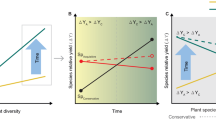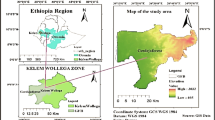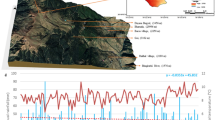Abstract
Management strategies aimed at rehabilitating degraded and cleared forests often rely on temporary or permanent exclusion of herbivores (wild animals, livestock or both). But in many cases, this simple management technique is not sufficient to induce ecosystem restoration: many negative effects keep the ecosystem in a suboptimal, low biomass state. The presence of such stable states requires restoration measures to act on multiple stress factors simultaneously.Compensating for all limiting factors is neither practically nor economically feasible. But detailed knowledge about the autoecology of tree species – i.e. their site requirements, regeneration strategies and recruitment dynamics – may be used to tailor management to the most pertinent problems. Here we illustrate this approach with results from forest restoration experiments in grazing exclosures in northern Ethiopia using African wild olive (Olea europaea ssp. cuspidata) as a representative Afromontane climax species.The recruitment of African wild olive is affected by seed limitation, restricted seed dispersal and germination and survival limitation. The exclusion of grazing animals as a single measure to restore forest is not enough. Degraded grazing land moves into a state dominated by persistent shrubs, arresting forest succession and discouraging local stakeholders. Direct sowing or planting of seedlings in fertile patches under selected pioneer shrubs, however, may help to overcome this form of bush encroachment, in particular during years with an above-average rainfall.
Similar content being viewed by others
Article PDF
Author information
Authors and Affiliations
Corresponding author
Rights and permissions
About this article
Cite this article
Aerts, R., November, E., Hermy, M. et al. Assisting natural forest regeneration in Northern Ethiopia: one measure is not enough. Nat Prec (2008). https://doi.org/10.1038/npre.2008.2437.1
Received:
Accepted:
Published:
DOI: https://doi.org/10.1038/npre.2008.2437.1



